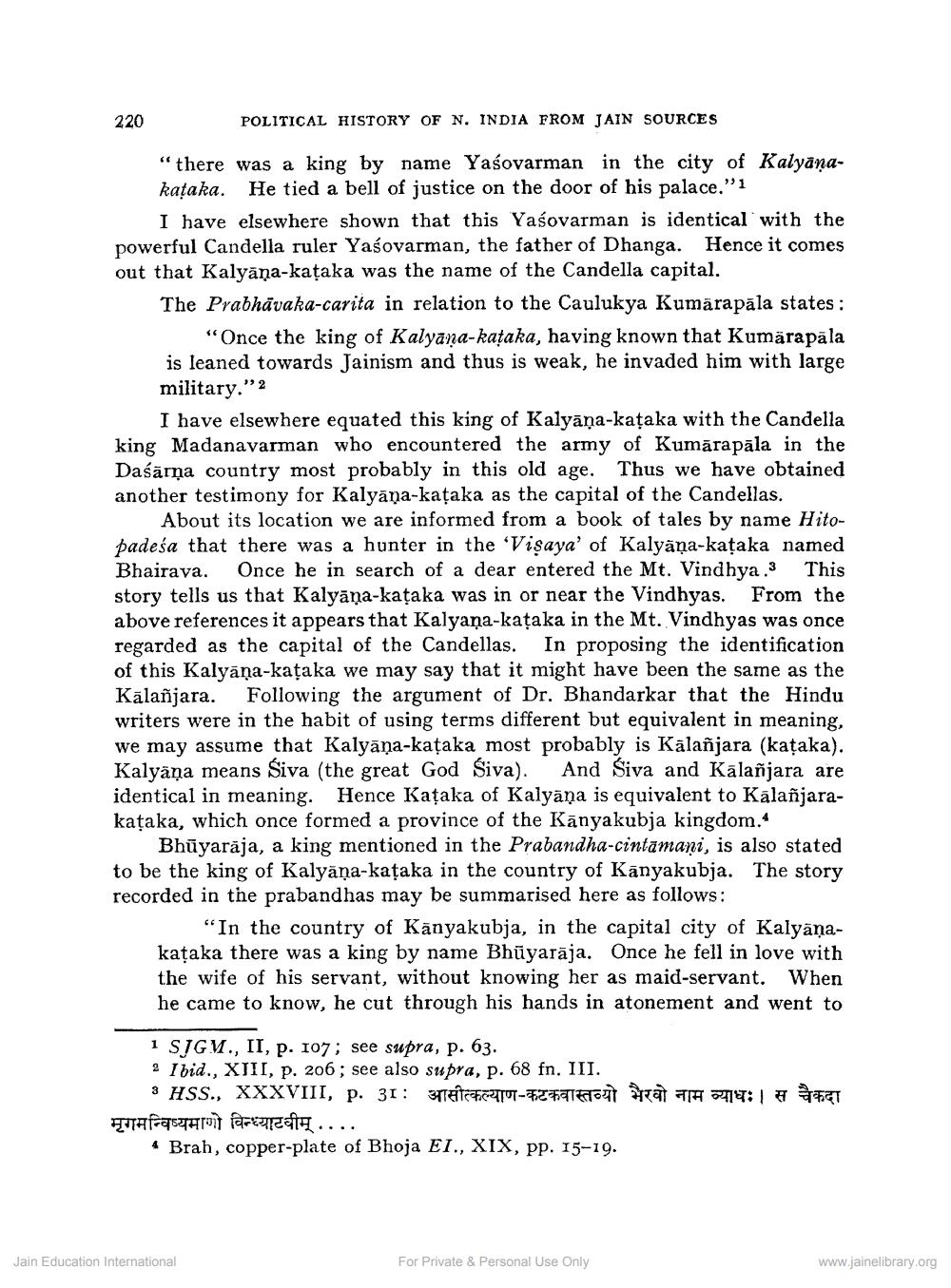________________
220
POLITICAL HISTORY OF N. INDIA FROM JAIN SOURCES
"there was a king by name Yasovarman in the city of Kalyanakațaka. He tied a bell of justice on the door of his palace."1
I have elsewhere shown that this Yasovarman is identical with the powerful Candella ruler Yasovarman, the father of Dhanga. Hence it comes out that Kalyāna-kataka was the name of the Candella capital. The Prabhāvaka-carita in relation to the Caulukya Kumārapāla states:
"Once the king of Kalyana-kataka, having known that Kumarapala is leaned towards Jainism and thus is weak, he invaded him with large military."2
I have elsewhere equated this king of Kalyāņa-kataka with the Candella king Madanavarman who encountered the army of Kumārapāla in the Daśārņa country most probably in this old age. Thus we have obtained another testimony for Kalyāņa-kațaka as the capital of the Candellas.
About its location we are informed from a book of tales by name Hitopadeśa that there was a hunter in the 'Visaya' of Kalyāņa-kațaka named Bhairava. Once he in search of a dear entered the Mt. Vindhya 3 This story tells us that Kalyāņa-kataka was in or near the Vindhyas. From the above references it appears that Kalyaņa-kataka in the Mt. Vindhyas was once regarded as the capital of the Candellas. In proposing the identification of this Kalyāņa-kataka we may say that it might have been the same as the Kālañjara. Following the argument of Dr. Bhandarkar that the Hindu writers were in the habit of using terms different but equivalent in meaning, we may assume that Kalyāņa-kataka most probably is Kālañjara (kataka). Kalyäņa means Siva (the great God Siva). And Siva and Kālañjara are identical in meaning. Hence Kațaka of Kalyāṇa is equivalent to Kālañjarakataka, which once formed a province of the Kanyakubja kingdom.
Bhūyarāja, a king mentioned in the Prabandha-cintamani, is also stated to be the king of Kalyāņa-kataka in the country of Kanyakubja. The story recorded in the prabandhas may be summarised here as follows:
"In the country of Kanyakubja, in the capital city of Kalyāņakataka there was a king by name Bhūyarāja. Once he fell in love with the wife of his servant, without knowing her as maid-servant. When he came to know, he cut through his hands in atonement and went to
vital city in 10
whe
1 SIGM., II, p. 107; see supra, p. 63. 2 Ibid., XIII, p. 206; see also supra, p. 68 fn. III.
8 HSS., XXXVIII, p. 31: TETEP 2110T-FEATTETE FNAFashrit rencat....
4 Brah, copper-plate of Bhoja EI., XIX, pp. 15-19.
S
H 214:
# $ACT
Jain Education International
For Private & Personal Use Only
www.jainelibrary.org




